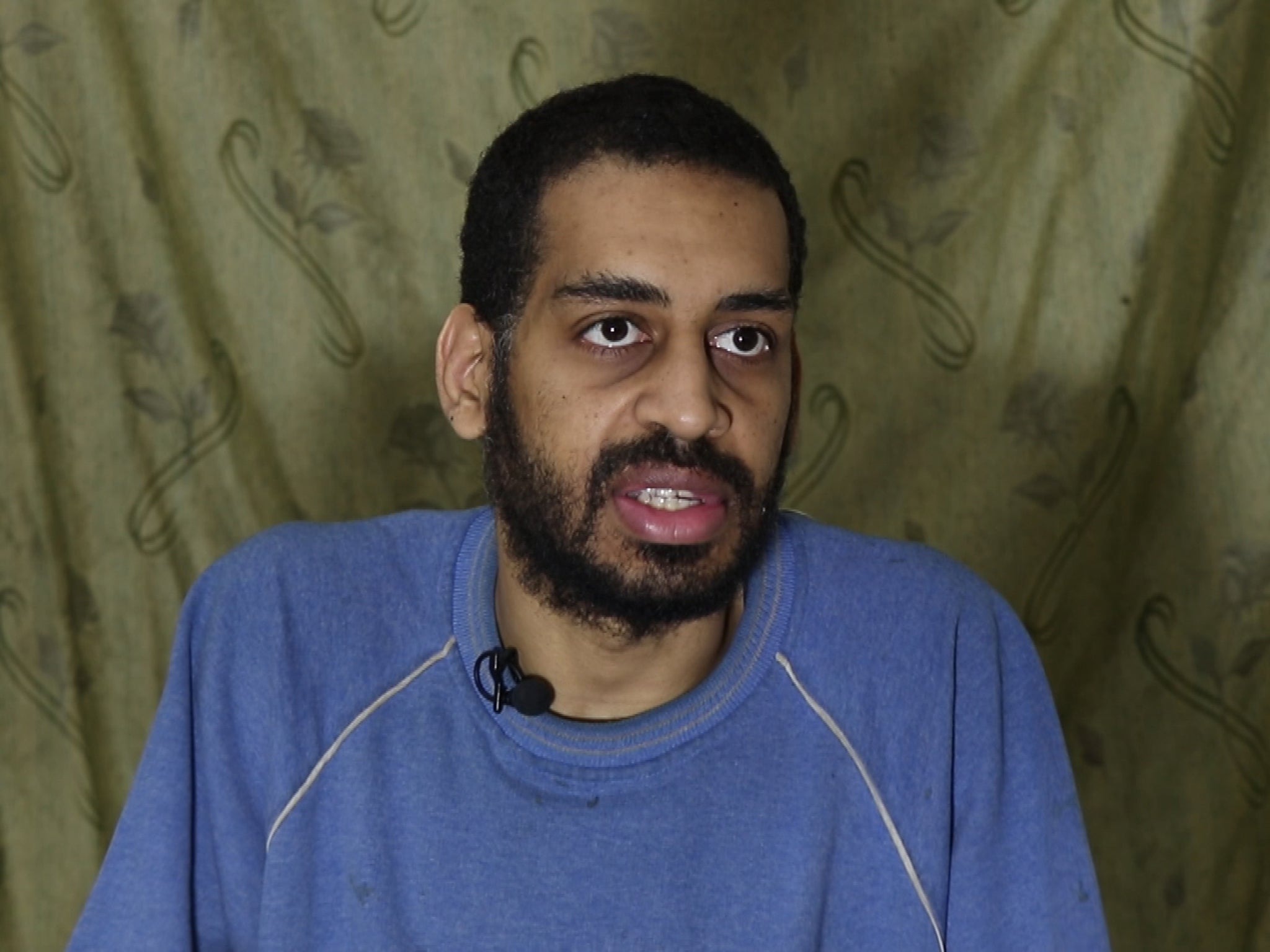Isis 'Beatles' could be tried in the UK, court told
El Shafee Elsheikh's mother is challenging lack of assurance from US that death penalty will not apply if pair are tried there

Two suspected Islamic State terrorists nicknamed “the Beatles” should be tried in the UK and not the US, judges have been told.
Alexanda Kotey and El Shafee Elsheikh are alleged to have been in a four-man group of Isis executioners in Syria responsible for killing a number of high-profile Western captives. Its members gained their nicknames because of their British accents.
The pair were snared in January last year, precipitating an international furore over whether they should be brought to the UK for trial or face justice elsewhere.
Then-home secretary Sajid Javid shared evidence with American authorities without obtaining assurances the men would not receive the death penalty if convicted in the US.
Elsheikh’s mother, Maha Elgizouli, is challenging the decision, which was a reversal of policies during Theresa May’s and Amber Rudd’s tenures at the Home Office.
Presenting her position at the start of a two-day Supreme Court hearing in London on Tuesday, Edward Fitzgerald QC said: “Mrs Elgizouli is solely concerned to protect her son from the death penalty.
“She recognises the enormity of the crimes alleged against her son, Shafee Elsheikh, and against his alleged accomplice Alexanda Kotey.
“She recognises that they should face justice ... but she submits that they should face justice in this country, the country of their past citizenship, the country of two of their alleged victims, and the country which has obtained the main body of evidence against them.”
The Crown Prosecution Service has now revealed there is enough evidence to charge Kotey with eight offences of hostage-taking and five of murder, and to prosecute Elsheikh for membership of a terrorist organisation.
The move comes after a separate legal challenge to its previous decision that there was insufficient evidence.
Mr Fitzgerald added: “It defies all common sense and legal logic that they can be tried in America on our evidence, but they can’t be tried here on our evidence.”
Elsheikh and Kotey had volunteered to return to the UK if they are to be tried in the UK, he added.
In contesting the “lawfulness and rationality” of Mr Javid’s decision, Mrs Elgizouli was asking no more than that the home secretary should have applied the “settled policy of requiring death penalty assurances in all such cases”, Mr Fitzgerald told the Supreme Court.
Mr Fitzgerald added: “Behind that policy lies a long and honourable tradition on the part of this country of rejecting the death penalty as morally wrong in all circumstances.”
The barrister said Mr Javid’s decision, outlined in a letter to then US attorney general Jeff Sessions, was taken against advice from officials that an assurance should be sought.
In April 2018 US officials began “voicing their opposition” to giving death penalty assurances to the UK, the court heard. Jeff Sessions, the former attorney general, told Mr Javid he did not want Britain to “tie his hands” in the use of the evidence, justices heard.
Sir Kim Darroch, the then-ambassador in Washington, warned that key members of Donald Trump‘s cabinet including James Mattis and Mike Pompeo could “wind the president up to the prime minister and, potentially, to hold a grudge” if the UK persisted in asking for assurances.
Mrs Elgizouli is appealing against a High Court ruling made in January by two leading judges, who concluded that Mr Javid’s decision was not unlawful.
Kotey and Elsheikh, who were raised in the UK but have been stripped of their British citizenship, were captured by the Syrian Democratic Forces in January 2018.
They are said to have been members of the cell that also included Mohammed Emwazi, known as Jihadi John, who was killed in a US air strike in 2015, and Aine Davis, who has been jailed in Turkey.
The hearing is due to continue on Wednesday and the court is expected to give its ruling at a later date.
Additional reporting by PA
